#AutomotiveIndustry
Auto Suppliers Just Realized EVs Will Cost Them Jobs
The Motor & Equipment Manufacturers Association (MEMA) has informed a Senate Commerce subcommittee on transportation that the Biden Administration’s penchant for electric vehicles is starting to get under its skin. The union is recommending that the United States avoid setting any timeline for the proposed banning of internal combustion vehicles because it might cost a staggering number of jobs.
Ann Wilson, MEMA’s senior vice president of government affairs, said vehicle restrictions were unrealistic before 2040 and would obliterate entire segments of the auto industry without providing concrete assurances that the environment would be improved. While the latter claim can be argued endlessly, the former is pretty difficult to refute.
Auto Lobby Now Recommends Driver Monitoring Cameras
On Tuesday, the largest automotive lobbying group released a handful of safety guidelines related to driver monitoring for vehicles equipped with driver-assistance features. It’s pageantry designed to convince you and the rest of the world to embrace technologies that have already led to unsettling privacy violations. The Alliance for Automotive Innovation making recommendations for the industry is farcical because the AAI already represents just about every major player on the field, suppliers included. The only real outsider is Tesla, which the organization decided would make an excellent scapegoat for the broader tech agenda.
But there’s still merit to the discussion, especially if the only proposed solution is to let the industry watch us inside our cars 24/7.
Chip Shortage Forcing Daimler to Stall Production
In today’s update on the semiconductor shortage, we learn that Daimler has elected to place over 18,000 Mercedes-Benz employees on reduced schedules. With an insufficient number of chips, the manufacturer cannot produce vehicles with sufficient reliability and has decided to ease off until resupplies are more predictable. Unfortunately, that’s unlikely to happen for at least a few months — forcing Mercedes to roll with the punches much like Subaru, General Motors, and Ford. Though this is a problem that’s impacting the entirety of the automotive industry.
Daimler made its announcement on Wednesday, stating that facilities in Bremen and Rastatt will be the first (and hopefully only) plants affected by the stall.
European Automakers Think Fuel Taxes Will Increase EV Sales
Undoubtedly eager to improve the take rate of electric vehicles, automakers have a myriad of solutions at their disposal. But the majority have something to do with getting the government involved to futz around with taxes.
Normally, this has to do with making special exceptions for EVs or subsidizing them via rebate programs. But governments seem happy to do this, as increasingly more legislation is advanced that would place restrictions on when and where people will be able to drive internal combustion vehicles, and automakers appear to be getting with the program. We’ve already seen manufacturers choosing sides in America’s gas war and now the Europeans are getting in on the action by demanding higher taxes be imposed on vehicles reliant on gasoline or diesel.
Rubber Shortages Become Latest Problem for Auto Industry
Those of you tracking the semiconductor shortage can probably take it easy for a while, as practically every industry group on the planet has tentatively agreed we’ll be seeing a chip deficit for a few years. Meanwhile, market analysts are trying to predict the next material we won’t have enough of and rubber is looking like an ideal candidate.
Rubber supplies are drying up and price increases are reportedly beginning to climb at an untenable pace. Despite several years of relatively stable availability and low prices, supply chain disruptions created by lockdowns have left latex harvesters in a bad position. Low prices encouraged many to over harvest their existing crop, rather than invest in farmland. But with shortages looking probable as countries began responding to the pandemic, China went on a buying spree to maintain a robust national stockpile in 2020. The United States was late to the party and now finds itself in a position where scarcity is driving rubber prices through the roof just when it needs to buy more.
Chinese Auto Sales Reportedly Rebounding Robustly
The China Association of Automobile Manufacturers (CAAM) is reporting its home market grew 74.9 percent in March, resulting in nearly 2.53 million new-vehicle deliveries. While we’re often skeptical of the organization’s rosy predictions and tallies, it’s claiming the recent sales surge is the direct result of how bad things had been in the previous year. China instituted some of the most aggressive lockdown protocols of any nation in the initial stages of the pandemic and had already been struggling with a declining vehicle market in 2019.
CAAM is making no illusions about the gains being based on anything other than how horrible March of 2020 was and doesn’t want to overpromise moving ahead. It’s a warning that the semiconductor shortage will likely worsen as the year continues, dampening Q2 projections. But the organization has not yet revised its forecast for next year’s overall sales. Last December, CAMM predicted roughly 26.3 million vehicles would be delivered by the end of 2021 and appears to be running with that target.
Auto Industry Requests U.S. Government Help With Chip Shortage
The Alliance for Auto Innovation (AAI) is hard at work begging the federal government for help while the world continues coping with the semiconductor chip shortage, though it’s hardly the first time the industry has asked for or received administrative assistance. With pandemic lockdowns throwing global supply chains into a tailspin, U.S President Joe Biden said his administration would be seeking $37 billion and new legislation to address the chip shortage while federal agencies were directed to see what could be done in the interim.
But there’s little to be done with the brunt of the relevant manufacturing taking place in Asia, hence the AAI lobby requesting U.S. Commerce Department set aside some cash for domestic chip production in a new bill.
Subprime Auto Market Looking Extra Rough in 2021
The subprime auto market looks to be in poor health as the number of borrowers with outstanding loans that are more than 60 days overdue continues increasing. While the number has a tendency to rise and fall between seasons, the general trend toward indebtedness has been going up since 2015, with increasingly more customers boasting lackluster credit scores becoming incapable of footing their transportation bill.
Delinquencies skyrocketed in 2020, as government lockdowns pushed many out of work and now appear to be increasing due to a recovery plan that primarily seems to be serving cooperate interests and the wealthiest socioeconomic classes. Though it should be said that middle and lower-class families had been losing ground for decades, at least according to the latest Pew Research data. Pandemic-related complications only served to accelerate the existing financial disparities on all fronts. We are now on course for poorer people to have even less money moving forward, especially in the world’s most developed countries.
I wonder why so many people are defaulting on their car loans…
Semiconductor Shortage Delays More Automobiles
The industry is having to stall more plants to contend with the semiconductor shortage that’s currently making it more difficult for you to get everything from a smartphone on up to your next vehicle. Ford Motor Co. recently informed employees that its Dearborn truck plant (easily one of its most profitable facilities) would need to be idled through the weekend to create a buffer for semiconductor chips. Worse yet, it’s not the first time the automaker has had to stall output of the F-150 this year. Ford has also started manufacturing trucks without all the necessary components, stating it would hold vehicles for a few weeks to account for supply chain delays.
Meanwhile, Chrysler has made a similar announcement about its minivan output as Windsor Assembly faces another chip deficit. Unifor Local 444 recently stated that the facility would be staring down the barrel of a four-week shutdown starting next week. Considering Chrysler’s minivans literally just dealt with a three-week stall over the chip shortage, union workers are understandably upset. Days earlier, General Motors Canada also announced that its CAMI plant in Ingersoll, Ontario, will likely remain idle until the middle of April.
GM Considers Sharing Chevy Bolt Between Dealers
The latest from Detroit has General Motors considering tweaking its delivery strategy for electric vehicles. While this appears to tangentially fall into the industry trend of trying to shove EVs into an online sales model, GM’s plan is distinctive and would introduce centralized inventory lots for the 2022 Chevrolet Bolt ( hatchback and EUV) before Christmas. But we can already see the dual-sized nature of the plan that will be used to promote and condemn it, should things move forward.
General Motors could be seen as throwing dealerships a bone by finding a way for those located in areas where EV buyers are less prevalent to provide their customers with electrified options. This saves them from having to prep their lots for charging and making space for vehicles people might not bother buying until the technology has further matured. However, with industry giants (including GM) vowing to continue making more of their lineup battery-powered, dealers might also view this as a coy way for the manufacturer to obtain more control over retail operations. Other manufacturers have already explained that they want to prioritize online sales of electric automobiles, with the end result likely mimicking the Tesla sales model … something that doesn’t include traditional dealerships.
Detroit Revises Assembly Routine Due to Semiconductor Shortage
On Thursday, Ford issued a statement explaining that some of its vehicles will be manufactured without the electronic modules dependent on semiconductors. While the automaker faulted the global semiconductor shortage, it also made mention of the winter storms from last month. A few shifts will reportedly be cut until supply chains stabilize while other lines will be constructing vehicles minus some electronics. The plan is for Blue Oval to hold onto them until more chips come in, minimizing production losses.
General Motors proposed a similar solution last week and has since started building 2021 light-duty full-size pickups without a fuel management module.
“Due to the global shortage of semiconductors impacting the global auto industry, we are making Active Fuel Management/Dynamic Fuel Management unavailable on certain 2021 model year full-size trucks,” said GM spokesperson Michelle Malcho.
Judge Approves Daimler AG's $1.5 Billion Diesel Emissions Settlement
On Tuesday, a federal judge approved a $1.5 billion settlement to pump the brakes on an investigation conducted by the U.S. government pursuing claims that Daimler used illicit software that allowed excess diesel emissions on 250,000 units. This runs in tandem with another $700 million settlement the automaker is making with vehicle owners, which is likely to see final approval in a few months, and an extensive recall campaign.
The federal case involves the U.S. Justice Department, the California Air Resources Board, and follows a trend of fines for automakers accused of misleading regulators so that diesel vehicles could continue being sold. This kicked off with Volkswagen’s Dieselgate in 2015, with numerous government probes taking place in Europe and North America over the next five years. Many automakers have since been discouraged from relying on diesel powertrains due to rising regulatory actions. European countries that once championed the fuel as ecologically preferable to gasoline, after the advent of biodiesels, are now obsessed with tamping down NOx emissions and getting more electric vehicles onto the road.
Sit on It: Foam Shortage Concerning Suppliers
You’ve no doubt heard about the chip shortage sweeping the automotive industry. But have you heard of the foam shortage? That’s right, there’s a dazzling new deficit of supplies in the manufacturing sector and it’s affecting your seats. The semiconductor crisis is so winter. Next season’s hottest supply trend involves those lovely little petrochemicals necessary for foam production.
Texas storms that left millions without power last month, during one of the coldest winters in the region, could have reportedly shorted oil refinery output to a worrying degree. There is now an underabundance of refinery byproducts used to make propylene oxide, which is required to produce polyurethane foam, which is used to manufacture car seats.
Geely Nixes Volvo Merger, Volvo CEO Explains
Despite having already having Volvo Cars as one of its many subsidiaries, China’s Geely signaled roughly a year ago that it wanted to merge with the brand as part of its strategy to expand globally. Plans changed on this week when the company announced that the duo will be retaining their independent corporate structures, though they will continue working on a joint development program for electric vehicles.
This means more backing for the Lynk & Co. brand, a technology-focused joint venture Geely launched with Volvo in 2016. Lynk is hoping to bridge the gap between traditional vehicle sales and subscription-based models, while also pioneering telematics and other connected services that look like an invasion of privacy to some and a technological breakthrough to others. Regardless, the industry as a whole seems convinced this represents the evolution of the automobile and a stable source of revenue for companies capable of monetizing large amounts of data — often with the help of the world’s largest technology firms.
How Many Vehicles Will the Chip Shortage Really Cost Us?
While the global semiconductor shortage is often reported as this out-of-nowhere surprise that has totally rattled smartphone and automotive manufacturers, 2020 was rich with signals that trouble was afoot. Global lockdowns forced factories to shut down, creating a lapse in demand in damn-near everything. By the time lines started firing back up, supply chains had become a disorganized mess. Nobody knew quite where to focus their efforts. But it was clear that everyone was going to be spending a lot more time indoors, resulting in an elevated need for the sort of components that go into mobile devices, television sets, personal computers, and other electronic gizmos.
Automobiles saw demand suppressed by around 15 percent (year-over-year) in 2020. However, the year ended with increased demand the industry figured would carry over into 2021. That, in conjunction with vehicles needing more semiconductor chips than ever to make sure they’re equipped with the latest features and perpetually connected to the internet, has automakers sweating. Practically every name in the industry has announced production shortfalls. But just exactly how many vehicles are we expected to lose from this?



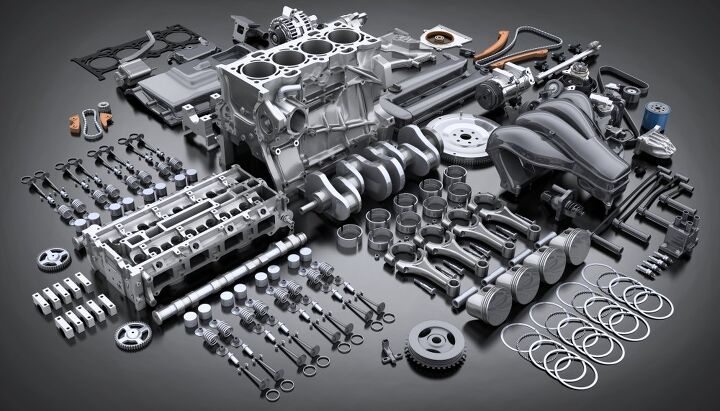
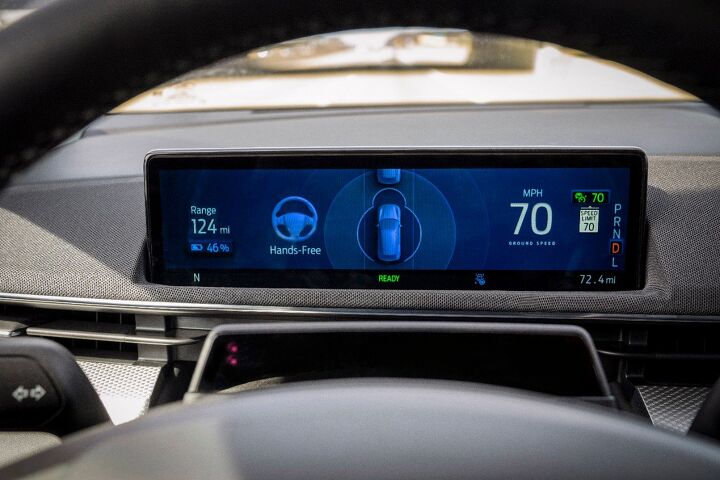



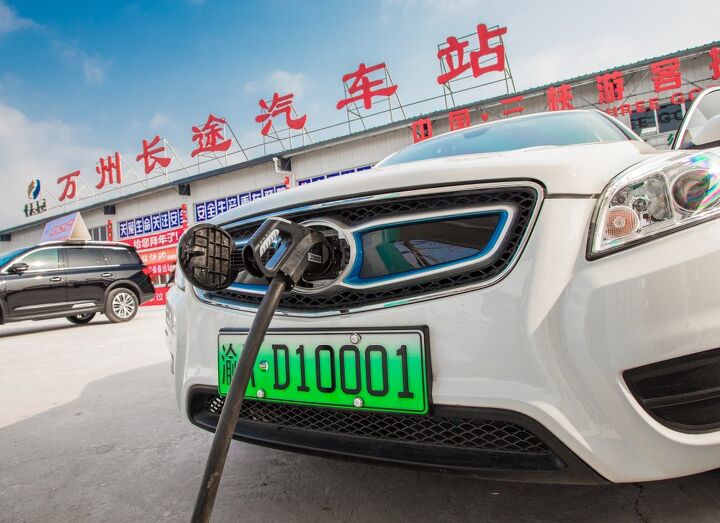


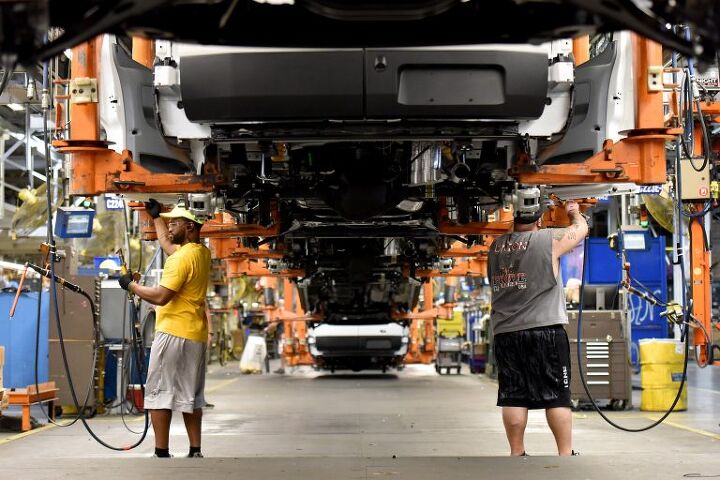
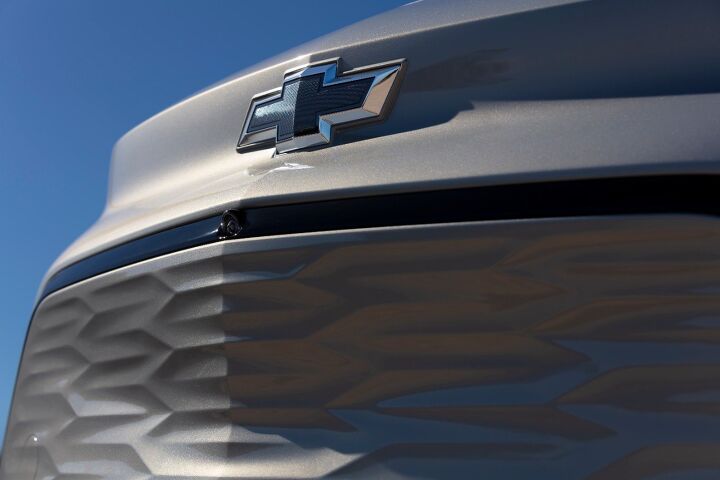

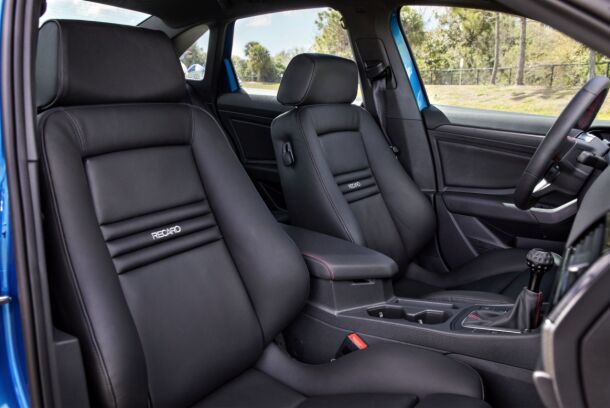

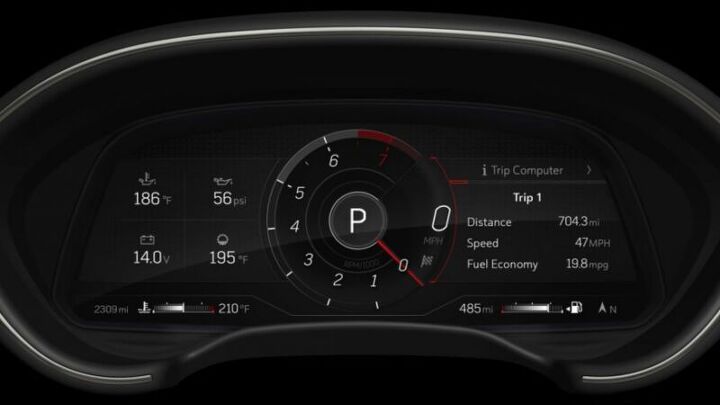












Recent Comments